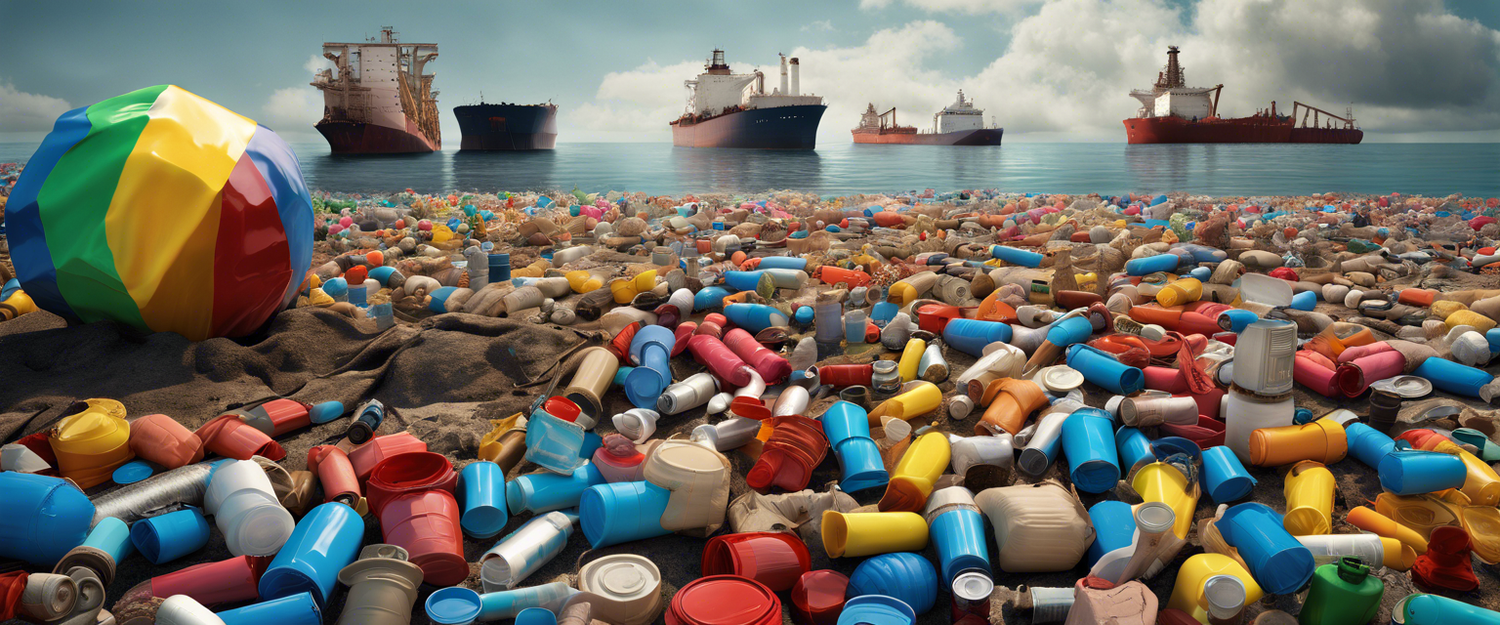International Treaty on Plastic Pollution: A Stalemate in Negotiations
Global discussions aimed at establishing a legally binding treaty to combat plastic pollution have hit a significant roadblock, resulting in a stalemate that extends negotiations well beyond the initial deadline. This delay, which emerged from recent talks involving more than 170 countries in Busan, South Korea, highlights the complexities of addressing the ever-growing crisis of plastic waste.
The Need for Limits on Plastic Production
Over 100 nations have expressed support for imposing limits on plastic manufacturing. However, fierce opposition arises from major fossil fuel-producing countries that advocate for waste management instead of curtailing plastic production. Proponents of a manufacturing cap argue that tackling plastic pollution at its source is the only viable solution to manage the alarming accumulation of plastic in landfills and oceans.
Setting limits on plastic production is not only essential for reducing waste but could also significantly lower greenhouse gas emissions responsible for climate change. Additionally, health advocates are calling for stringent regulations to prevent the use of hazardous chemicals in plastic production.
The Human Cost of Plastic Pollution
Activists like Jo Banner, co-founder of The Descendants Project, have voiced their concerns during these negotiations. Banner's organization focuses on communities along Louisiana's industrial corridor, commonly referred to as "Cancer Alley" due to the presence of numerous oil refineries and hazardous facilities. Banner poignantly conveys the human toll of industrial pollution, stating, "We are the canary in the coal mine," reflecting the dire health risks faced by predominantly Black and impoverished communities in the region.
The Environmental Impact of Plastic Production
Research shows that plastic production has skyrocketed, doubling between 2000 and 2019, ultimately reaching 460 million metric tons. The manufacturing process involves over 16,000 chemical substances, many of which are problematic. Alarmingly, only 6% of these chemicals are subject to international regulations, with more than 4,200 identified as hazardous.
Banner’s experiences at the treaty negotiations reveal a persistent commitment among activists to hold fossil fuel producers accountable, especially as communities continue to suffer from pollution.
The Role of Major Players in the Negotiation Process
Despite widespread advocacy for a strong treaty, the negotiations faced strong resistance from delegates representing major oil-producing countries, including Saudi Arabia and the United States. These nations opposed any proposals that sought to impose production limits, instead favoring enhancements in recycling efforts—a strategy that environmentalists argue has repeatedly failed due to low recycling rates, often cited as below 10%.
The Recycling Myth
The recycling of plastic remains a challenge; the process is not only costly but also complicated due to the variety of plastic types. Even successful recycling often results in "downcycling," where the quality of reused plastic diminishes over time. In many cases, producing new plastic proves to be a cheaper and more efficient option.
Looking Ahead: The Hope for a Plastics Treaty
Despite current setbacks, Jo Banner maintains hope for future international treaty progress. She emphasizes the determination of advocates to continue pushing for ambitious solutions to combat plastic pollution. "It's still disappointing that we weren't able to reach the treaty yet," she says, but her resolve reflects a broader commitment among environmental activists to keep the conversation alive.
Conclusion: The Fight Against Plastic Pollution Continues
As discussions revolve around strategies to mitigate plastic pollution, the focus must remain on both production limits and sustainable practices. Without immediate action, the global plastic crisis will only escalate, prompting continuous advocacy from affected communities and environmental organizations. The need for a legally binding agreement isn't just an environmental issue—it's a pressing human rights concern that requires focused attention and collaborative efforts across nations.
As we move forward, it becomes clear that united action and a comprehensive approach will be essential in addressing the multifaceted challenges of plastic pollution.



Залишити коментар
Усі коментарі модеруються перед публікацією.
This site is protected by hCaptcha and the hCaptcha Privacy Policy and Terms of Service apply.